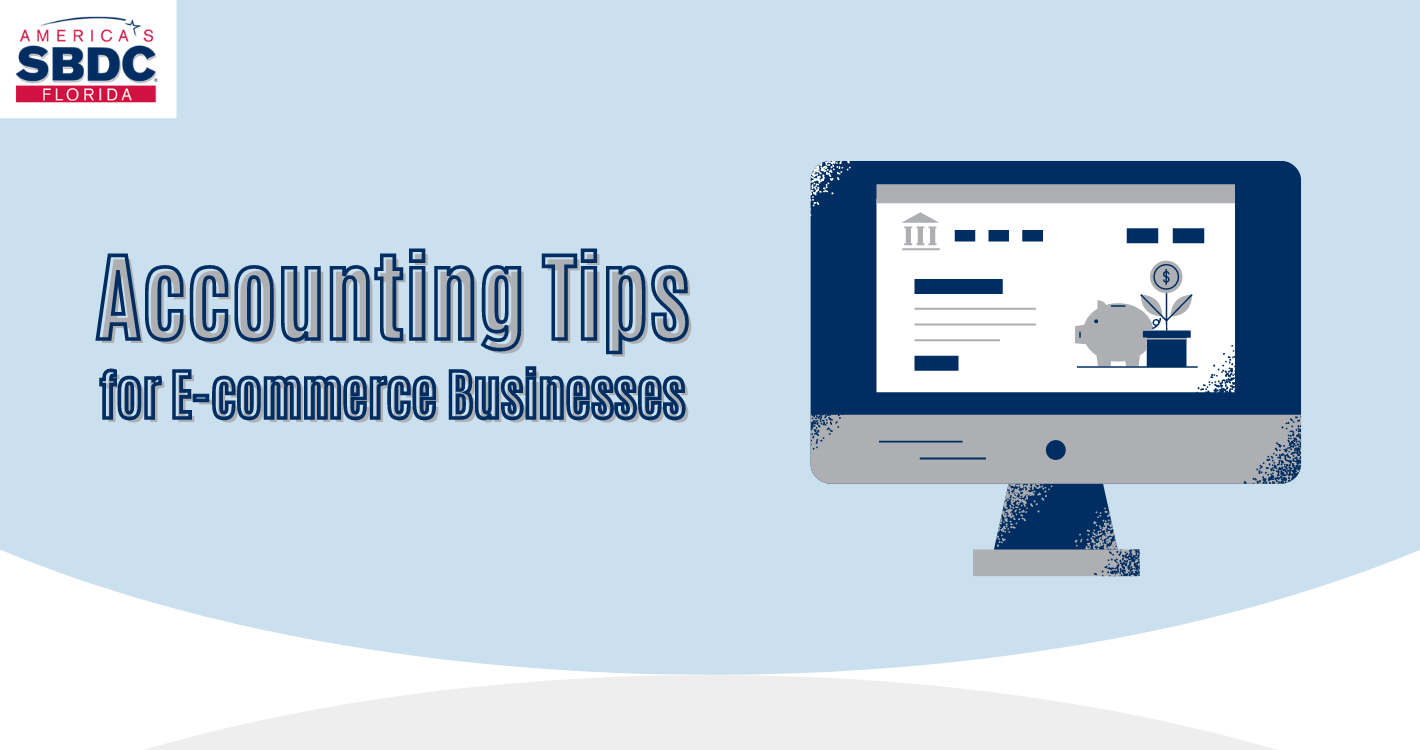Accounting Tips for E-commerce Businesses
by Simplice Essou, CPA | December 27, 2021
For most business owners the accounting function is one they would rather not deal with. However, it is one of the most important functions for a business. For e-commerce, as for any type of industry, accounting is a vital function of your business as it allows for the tracking of expenses and expenditures.
E-commerce has been growing rapidly in the past few years to become the fastest growing segment of the retail industry. For business owners understanding some basic accounting principles is a must if they want to be successful.
According to the Hartford’s Business Owner Playbook, research shows that poor cash flow is the reason behind nearly 80 percent of small business failures. This striking figure shows the importance of having a good cash flow and always monitoring it. In this article I will share a few a tips for e-commerce owners.
- Record all transactions
Recording all your accounting transactions is the first step in having a good handle on the finances for the business. It ensure that all the sales amounts are booked and all the expenditures are booked as well. That will allow for a true representation of the business’s finances. For retailers, the following must be appropriately accounted to ensure profitability and taxes are accurately filed: revenue, expenses, liabilities, equity, assets and returns and charge-backs.
- Track your cash flow
You are in business to make money. To know how much money the business is making you need to have a good handle of how much money in coming in (sales) and how much is going out (expenditures). Increasing sales is not always the best way to increase cash flow. Decreasing or eliminating expenses that are necessary will go a long way in improving cash flows. A good credit policy is also a way to improve cash flow. For example, only extend credit to customers with excellent credit or those you have done business with for a while and have always paid on time. Another way to improve cash flow is by working better payment terms with your vendors such as discounts or longer payment terms.
- Invest in a robust and reliable accounting and bookkeeping system
Investing in a reliable bookkeeping system may be one of the best investments a business owner can make. It allows for the simpler tasks to be automated saving a lot of time and efforts. A software program such as Intuit QuickBooks works well for small businesses. It is essential to update the books as often as possible. There are several versions of QuickBooks. One of the most popular ones with small businesses is QuickBooks Online. The Plus Version allows for inventory management and is recommended for retail e-commerce businesses.
- Properly manage inventory
For many e-commerce businesses inventory is often the largest asset class on the financial statement. Therefore proper management of the inventory will ensure continuous profitability while managing risks associated with carrying too much inventory. When a business is carrying too much inventory it has cash tied down that is not being used and therefore hurts the business’s cash flow. It is imperative to determine the least amount of inventory to carry and keep track of it so the company can order before it runs out of inventory.
- Prepare financial statements
All businesses are required to prepare financial statements. It can either be a Schedule C that is attached to the owner’s 1040, an 1120 for a C corporation, a Schedule S for a S corporation or a form 1065 for partnerships. In either case the IRS requires the returns to be prepared accurately and filed on time. It is highly recommended to hire an accountant, a CPA or a tax preparer to assist in the preparation and filing of the tax returns.
Following these tips will allow for less stress come tax time as well. Accounting principles are an important aspect for owning a business, so take the time to get help and learn all you can to better manage your business’s financials and increase your chances of success.
Author: Simplice Essou





